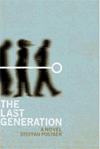![]()
Fan loyalty no longer a ‘gimmie.’
ESPN’s John Kincade was on the radio the other day talking NBA Finals. The Lakers had not yet been eliminated; they would be soon in an embarrassing blowout. And Boston had lost their first two games before taking a must-win at home. Kincade was asked if we were witnessing the end of an era. With big (and aging) stars like Kobe Bryant (LA) and Kevin Garnett (Boston), these two teams once dominated their conferences and the league, winning it all the last few years.
Upstart younger teams such as Memphis, Oklahoma City and the Chicago Bulls are now the talk of the NBA. Not withstanding Chicago, these new teams are from small markets. Memphis vs. Oklahoma City sounds more like a country feud than a playoff basketball game.
Kincade was asked if he’d still watch NBA games without perennial powerhouses like LA and Boston. I found his answer interesting as well as relevant to topics covered on this blog. Kincade said he absolutely enjoys following small-market teams. He added that he regularly makes “appointments” to watch teams who are playing good ball, regardless of geography. For that matter, he added, more and more other fans are doing so as well.
Jumping ahead, is it possible new fans are no longer being born into specific allegiances? Instead of growing up a “die hard” fan of the home team, now they could and would choose teams based on far more personal criteria, like a player’s Twitter feed or an athlete’s personal style on and off the court. With countless different ways to be a spectator, and even more ways to interact with teams and the media, fans need no longer feel chained by geography. Fandom is becoming random.
A game changer for games? Well, if fans pick whom they want to root for regardless of geography, sports teams will have to rethink how they cultivate and maintain a fan base. They will no longer be able to count on die-hards for selling tickets and other revenues. Gone is being a Cubs fan no matter what or bleeding Boston Red. If I’m right, the implications for teams in all sports is staggering. And I’m almost positive it makes marketing and social media as important as winning…if they aren’t already.
Ironically, almost a year ago today, I wrote a piece about Chicago’s lovable losers, the Cubs. I wrote that the Cubs brand transcends its reputation for losing, suggesting that losing might even help them in a vaguely masochistic way. Historically, the Cubs have always benefited from being televised on WGN, which is broadcast all over the place. They also have an ace in their deck, called Wrigley Field. But can the brand thrive in the 21st century? The many empty seats early in the season suggest otherwise. People are blaming the generally miserable Chicago weather. But that never stopped the Cubs’ faithful before. Accustomed to Facebook and Twitter, maybe the new generation simply refuses to follow a bunch of losers.



 The Happy Soul Industry
The Happy Soul Industry The Last Generation
The Last Generation